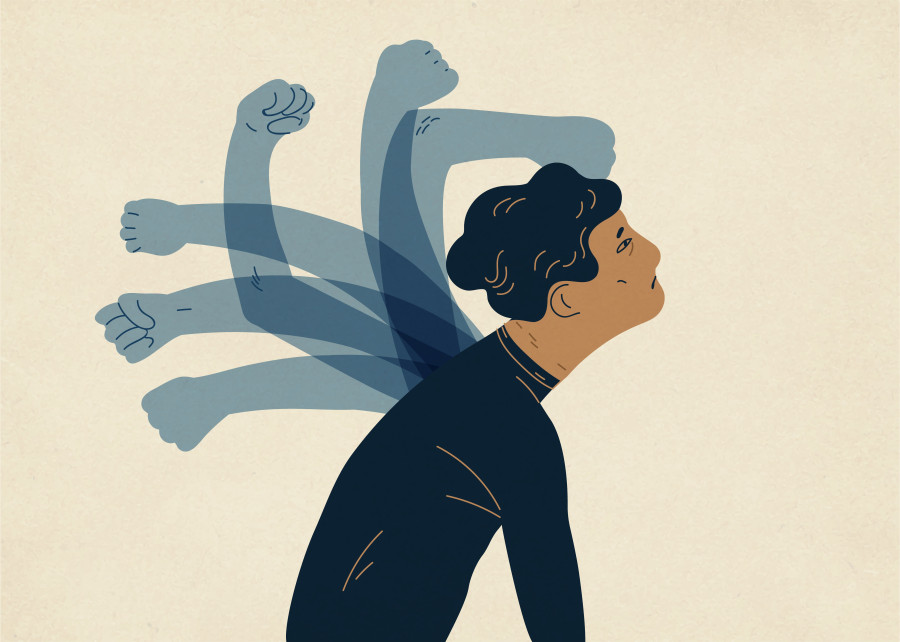Culture & Lifestyle
Coming to terms with guilt
Guilt may be conscious and unconscious, but it stays with us no matter how much we try to forget it.
Tashi Gurung
Over these past weeks, I came across two pieces of literature that coincidentally had a similar premise. The first one is a novel–‘Atonement’, by Ian McEwan. The novel’s premise lies in the protagonist Briony’s strive to atone (ie, make amends) for a childish naïve mistake she had made as a young girl throughout her adult life. Similarly, the second one is the Shakespearean play ‘Macbeth’, where the protagonist Macbeth, along with his wife, also struggles with the repercussions of their actions. It becomes so heavy for them that they start to lose touch with reality and are driven to insanity.
All of these characters, I identified, were struggling with the feeling of guilt. As a counsellor, I reflected that this feeling is more common than I realised. Guilt is something we all experience in our lives at one time or the other. It refers to the moral emotion of believing that one is responsible for wrongdoing. This feeling, in itself, can be so intense that it stays with us persistently and is very difficult to let go of.
‘Mann le mandaina’ (My heart can’t let go of it) is a common phrase I often hear from my clients whenever we dissect this feeling. I often became frustrated as, unlike them, I could look into the situation rationally and see that they had nothing to bear the burden about. It was not their fault, or it was by default that it had happened, but still, it was hard for them to register.
When I talked to my supervisors about my frustrations, they provided feedback that really helped me understand their experience. The internal battle they are having with themselves, particularly their conscience, is incredibly tough. I also thought about my own experiences with guilt and recalled that I had worked on this with my therapist in the past.
When discussing my experience with bullying, the therapist suggested trying somatic experiencing. After initial hesitation, I agreed to it. Somatic experiencing involves drawing on positive memories by invoking bodily sensations and using them to cope with the traumatic, painful memories. During the course of the exercise, while invoking positive memories, I suddenly had a vivid image of my maternal grandmother. Even when we moved on to the unpleasant memories, it was only for a relatively short time; my grandmother’s presence made me feel protected and safe. I sensed that she was guarding me with her unwavering love.
That is when it struck me. I had tears in my eyes as I finally gathered that I was experiencing guilt. The guilt of not spending enough time with her, not being there for her, had implicitly always stayed with me. With my grandmother’s presence in the session, I asked for forgiveness: for not being a good grandson and wishing I could have done more.
Even though there was no obvious answer that came to my head, I could sense a warm presence. Moreover, I could sense that she was urging me to forgive myself. On this realisation, I felt very much lighter: like a huge load had been placed off my shoulders. This turned out to be one of the most enhancing experiences in therapy for me.
In hindsight, I realised how guilt can be very conscious and unconscious, but it does tend to stay with us no matter how much we choose to forget about it. Guilt remains within us–in our bodies, irrespective of time or place.
Therapy is one of the ways to work around it. Since my grandmother had passed away, somatic experiencing turned out to be an ideal way to process these emotions. Otherwise, if those unresolved emotions are with people who are still around, the therapist can guide us to connect with these feelings and then move towards resolving them by guiding us to apologise and make amends.
Even if the apology is not accepted or amends cannot be made, we can still be able to learn from the experience. As we acknowledge these feelings, we learn to accept them by practising self-forgiveness. We acknowledge that we have made a mistake and trust ourselves to do better in the future.
Rather than ruminating over what we have done, we learn to let go and be more compassionate towards ourselves and others–as we are no longer carrying those burdensome feelings. Resolving these feelings can certainly be a very enriching experience, and we can feel very much lighter and free.
Gurung, a counselling psychologist, works at Happy Minds, a mental health and well-being platform.




 8.4°C Kathmandu
8.4°C Kathmandu















